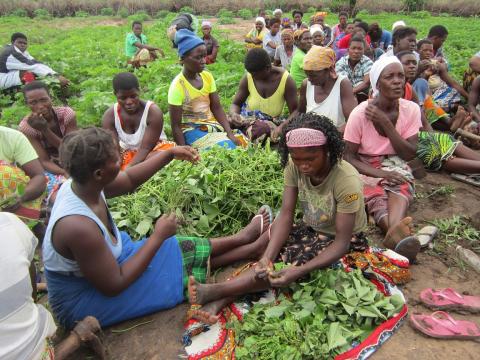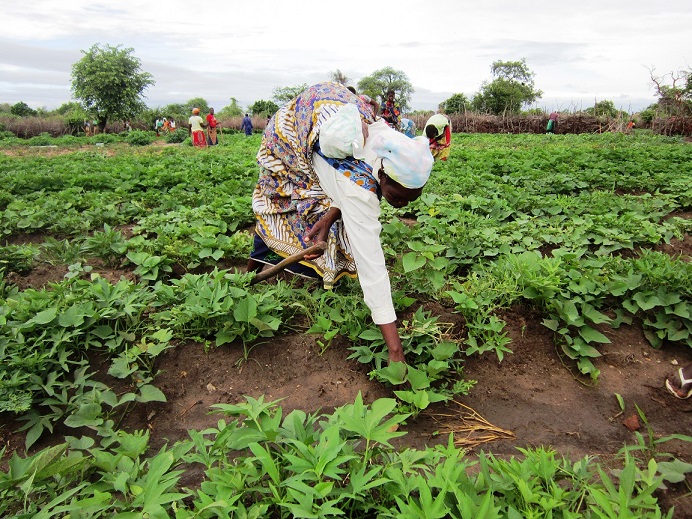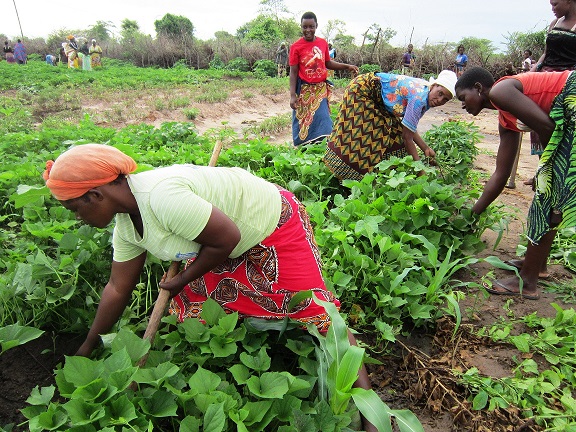Relief work covers urgent needs of 190,000 people in drought-hit provinces of Mozambique

By Lucia Rodrigues, Response Communications Coordinator
Thanks to our partnership with the United States Office of Foreign Disaster Assistance (OFDA), more than 17 metric tons of seeds have been distributed to approximately 6,000 households affected by El Nino-induced drought in Mozambique’s central province of Tete. The seeds are designed to help struggling families recover from the impact of the drought.
The seed distribution targeted farmers in the wake of a blistering El Niño induced-drought which caused failed planting seasons, forcingd thousands of people, mostly dependent on subsistence farming, into food insecurity. The seeds are helping people like Torna Luís Piano, mother of Elísio, 7, and Festi, 4, and thousands of other farmers farmers to start planting again. Torna saw her crops fail during the last two growing seasons due to lack of rains. Her means of livelihoods were destroyed and her children's life put on hold. “My son, Elisio, could not go to school due to hunger,” she recalls.
Last year, Torna started receiving food rations to help meet the family’s immediate food needs. To help Torna and other farmers provide for their families, World Vision provided drought resistant seeds directly benefitting 30,000 drought-affected people. The results are promising as the rains are falling and the plants are growing.
“You see the green out there?" asks Torna. "All this was dry during the drought,” she says, pointing to the field of sweet potatoes she grows together with 30 people in her group. “We were a little bit concerned when we were given this orange-fleshed variety of sweet potatoes to plant because we are not used to them. But, World Vision convinced us. When we harvested, we cooked [the potatoes] for our children, the rest we sold to get money for school fees and other needs,” Torna explains.
This year, Elisio, will attend school like the other children of his age in the community. “Things are getting better and there is no any excuse to stay at home,” Torna adds. Torna´s farmer's group is one of seven receiving technical assistance and seeds across the hardest hit districts of Changara, Cahora Bassa and Magoe in the Tete province.
“We are pleased with the progress made and the incredible support received from donors and the Government of Mozambique,” says World Vision’s Emergency Response Director, Ventura Mazula. “The programme was designed to address the people’s most critical needs. The impact has been positive. It is gratifying to be a part of a team of committed staff who work hard to make a difference in the lives of communities devastated by the drought,” he adds.
“The response did not resolve all problems and there are still challenges ahead of us. There is an ongoing need to continue working on disaster risk reduction to build resilience and adapt to climate changes. These challenges will require the continued support of key stakeholders,” Ventura shares.
An estimated 190,000 people have benefitted from World Vision’s drought response in Tete and Sofala provinces, through the provision of clean and safe water through rehabilitation and drilling of boreholes, child protection and nutrition interventions.

